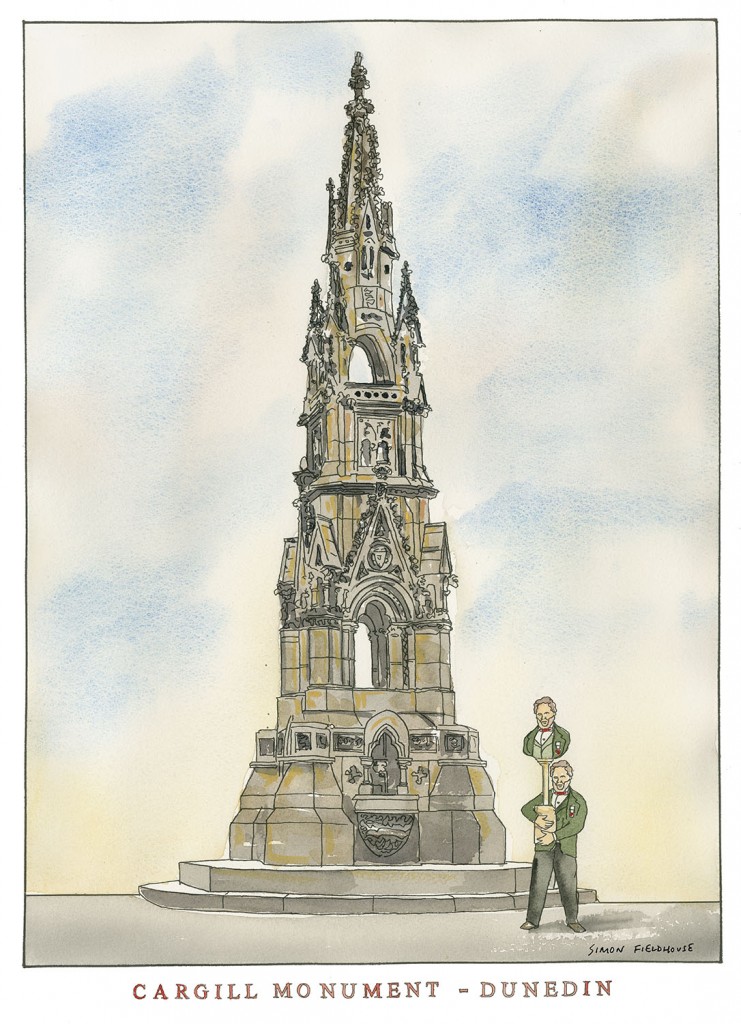
Cargill Monument Dunedin
Cargill Monument Dunedin. William Walter Cargill (27 August 1784 – 6 August 1860) was the founder of the Otago settlement in New Zealand, after serving as an officer in the British Army. He was a Member of Parliament and Otago's first Superintendent.William Walter Cargill (27 August 1784 – 6 August 1860) was the founder of the Otago settlement in New Zealand, after serving as an officer in the British Army. He was a Member of Parliament and Otago's first Superintendent.William Walter Cargill (27 August 1784 – 6 August 1860) was the founder of the Otago settlement in New Zealand, after serving as an officer in the British Army. He was a Member of Parliament and Otago's first Superintendent.
He died of a stroke on 6 August 1860, at his home "Hillside" in Dunedin, and is buried in Dunedin Southern Cemetery with his wife and three children.[6] His daughter Isabel Cargill, travelled to Italy with Miss Ann Marie Babington and 1892 they opened Babington's English Tea Rooms www.babingtons.com on the Spanish Steps in Rome which still today belongs to her descendants. Numerous names have connections with Cargill. The city of Invercargill is named for him (Inver coming from the Scots Gaelic word inbhir meaning a river's mouth), as is Mount Cargill, which towers above northern Dunedin. "Cargill's Corner" is a major road intersection in South Dunedin, and one of the roads which crosses at it is Hillside Road, named for Cargill's house. A Tasmanian sandstone monument to Cargill was built in Dunedin in 1864.[7]
Cargill's Castle, a ruined stately home above St Clair is not named for William Cargill, but for his son Edward.